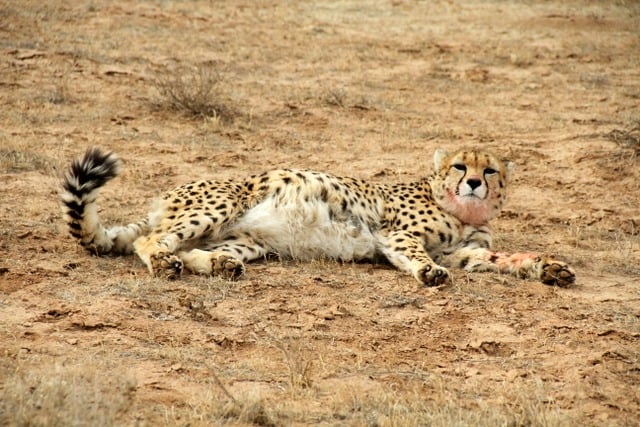
The birth of three rare Asiatic cheetah cubs in Iran is being hailed as a victory by conservationists worldwide. The May 1, 2022, announcement by Ali Salajegheh, head of Iran's Department of Environment (DOE), marks the first time the critically-endangered cheetah subspecies has reproduced in captivity.
The adorable male cubs were born at the Touran Wildlife Refuge in the Semnan province, east of Tehran. The newborns and their mother were instantly whisked away to the intensive care unit for monitoring. One cub died on May 4, 2022, but the other two have been steadily gaining weight since birth and appear healthy thus far.

The mother cheetah, named Iran, was rescued from wildlife smugglers in December 2017 when she was eight months old. She was introduced to the cubs' father —Firouz, a male Asiatic cheetah captured from a local national park — in 2021.
Asiatic cheetahs are believed to have split from the African cheetah between 32,000 and 67,000 years ago. They are paler in color and have thicker coats and slender legs. The animals feed on medium-sized herbivores, such as Indian gazelles, wild sheep, and goats. Like their African cousins, Asiatic cheetahs can reach sprinting speeds of up to 128 kilometers per hour (80 mph) to catch their prey.
The animals once roamed freely across Central Asia, from the Middle East to Russia. However, their population has been decimated due to poaching, loss of habitat, and decreased prey. The Iranian Cheetah Society estimates that there are currently only 12 Asiatic cheetahs left in the wild. All are in Iran.
Resources:: CNN.com, doe.ir, zeiger.news